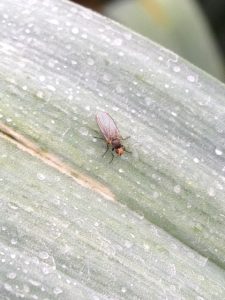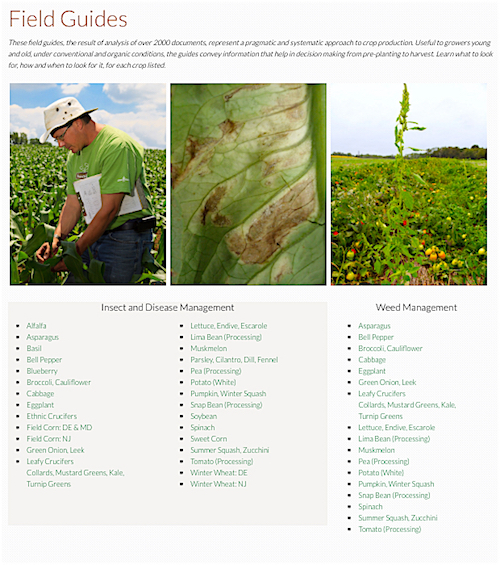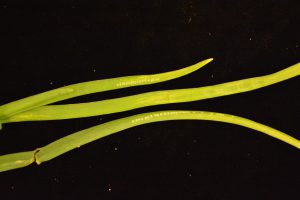Allium Leaf Miner (ALM)
As of last week, allium leaf miner (ALM) adults were still being captured on sticky cards placed in chive plantings in Mercer and Hunterdon counties, and in a garlic planting in Morris County. Numbers had declined somewhat from catches the week of 4/15. There is a possibility that damaging levels of ALM adults remain. Once we cease to capture adults, another update will follow.
Growers should consider initiating the control method of their choice at this time, if any allium crops are in the field. Affected crops include chives, scallions, garlic, onions and leeks. Look for neat rows of white spots descending from the upper tips of allium leaves (see photo at left). Initial injury often occurs on the tallest leaves. Under warmer, less breezy conditions, adults may be seen near the tips of leaves (see photo of adult at lower right). Perennial chive beds are often the first, and most heavily infested alliums of the spring season, so this makes chives an ideal crop to confirm ALM adult activity.
Floating row covers, kept on until this flight ends will help minimize access to plants. Insecticide applications targeting adults may be helpful as well, although frequency of applications is uncertain. Spinosyn materials (Radiant, Entrust (OMRI approved)), pyrethroids (Mustang Maxx,  Warrior), neonicotinoids (Scorpion, Venom), the diamide Exirel (section 2ee recommendation) and the insect growth regulator Trigard are labeled for miner control.
Warrior), neonicotinoids (Scorpion, Venom), the diamide Exirel (section 2ee recommendation) and the insect growth regulator Trigard are labeled for miner control.
 Articles in this section contain information helpful to the NJ commercial organic grower.
Articles in this section contain information helpful to the NJ commercial organic grower.

